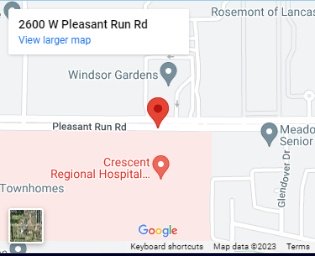Job Summary
Provides professional nursing care within the Emergency Department; coordinates care planning with other disciplines. Provides care that meets the psychosocial, physical and general aspects of care. Determines priorities of care based on physical and psychosocial needs of patients, as well as factors influencing patient flow through the system. Communicates with ED physicians regarding changes in patient’s status, symptomatology and results of diagnostic studies. Responds quickly and accurately to changes in condition or response to treatment.
Demonstrates Competency in the Following Areas
- Provides direct patient care, evaluates outcomes, consults with other specialists as required and adjusts nursing care processes as indicated to ensure optimal patient care.
- Ability to perform a head-to-toe assessment on all patients and reassessments as per policy. This includes neonate, pediatric, adolescent and geriatric patients and the general patient population.
- Uses triage process to ensure timely and appropriate care to patients. Accurately assigns triage categories.
- Ability to adequately assess and reassess pain. Utilizes appropriate pain management techniques. Educates the patient and family regarding pain management.
- Ability to monitor hemodynamic status of patient and correctly interpret the results.
- Demonstrates knowledge of cardiac monitoring, identifies dysrhythmias and treats appropriately.
- Ability to perform waived testing (point-of-care testing) per Clinical Laboratory’s and the patient care unit’s policies and procedures.
- Ability to interpret the results of waived tests; takes appropriate action on waived test results.
- Maintains current knowledge of medications and their correct administration based on age of the patient and his/her clinical condition.
- Follows the seven (7) medication rights and reduces the potential for medication errors.
- Prepares, hangs, monitors and discontinues IV fluids.
- Maintains accurate and continued nursing documentation including patient histories, conditions, treatments, responses and assessment of changes.
- Performs all aspects of patient care in an environment that optimizes patient safety and reduces the likelihood of medical/health care errors.
- Orients new employees to the Emergency Department.
- Treats patients and their families with respect and dignity. Identifies and addresses psychosocial, cultural, ethnic and religious/spiritual needs of patients and their families. Functions as liaison between administration, patients, physicians and other healthcare providers.
- Supports and maintains a culture of safety and quality.
- Demonstrates knowledge of the principles of growth and development over the life span and the skills necessary to provide age-appropriate care to the patients served. Able to interpret data about the patient’s status to identify each patient’s age specific needs and provide care needed by the patient group.
- Interacts professionally with patient and family and involves patient and family in the formation of the plan of care.
- Formulates a teaching plan based on identified learning needs and evaluates effectiveness of learning; includes family in teaching, as appropriate.
- Maintains established departmental policies and procedures, objectives, performance improvement program, safety, environmental and infection prevention and control standards.
- Maintains a safe, comfortable and therapeutic environment for patients and families in accordance with hospital standards.
- Assists in cost containment through the appropriate ordering and conserving of supplies and equipment.
- Cooperates with other staff to achieve departmental objectives; maintains good employee relations and interdepartmental objectives.
- Responds promptly to changes in workload, adjusting assignments as necessary to achieve optimal productivity and efficiency.
- Provides resource information to other staff.
- Demonstrates the ability to assist physicians with procedures in the Emergency Department.
- Supervises temporary employees and employees who do not supervise; allocates and monitors work of others; leads one or more employees performing similar work.
- Orients new employees to the Emergency Department.
- Assists the Emergency Department Nurse Manager in the development, implementation and evaluation of performance improvement indicators to improve patient outcomes and the work environment.
- Participates in problem-solving with other healthcare team members related to management of clinical care area.
- Enhances professional growth and development through participation in educational programs, current literature, in-service meetings and workshops; shows responsibility for own professional practice and ongoing education.
- Works at maintaining a good rapport and a cooperative working relationship with physicians, health plans and staff.
- Performs other related duties as assigned or requested.
Regulatory Requirements
- Graduate of an accredited school of nursing.
- Current Registered Nurse licensure in the State of Texas or hold Compact State licensure.
- Current BCLS certification.
- Current ACLS certification.
- Current PALS certification or within 60 days of hire.
- Current TNCC certification or within 6 months of hire.
- Basic EKG or Arrhythmia-identification certification preferred.
- Minimum of one (1) year work experience in the Emergency Department/ICU.



